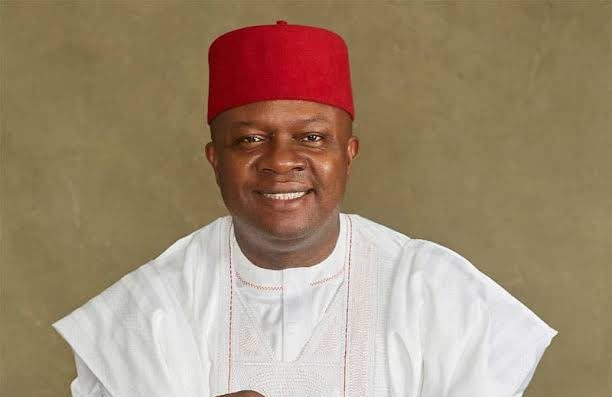Valentine Ozigbo, a prominent chieftain of the All Progressives Congress (APC) in Anambra State, has launched a scathing critique of Governor Chukwuma Soludo’s administration, accusing it of prioritizing style over substance and engaging in deceptive public relations tactics rather than addressing the fundamental needs of the people. Ozigbo’s criticism coincides with President Bola Tinubu’s visit to Anambra State to inaugurate some of Governor Soludo’s projects, a visit which Ozigbo acknowledged with courtesy while simultaneously using the opportunity to highlight what he perceives as the governor’s failings. The core of Ozigbo’s argument centers on the assertion that Soludo’s administration has focused excessively on superficial projects and image-building exercises, while neglecting critical issues plaguing the state, including unemployment, insecurity, and the lack of affordable public housing.
Ozigbo’s statement portrays Governor Soludo’s tenure as a “theatre of missed priorities, misplaced ambitions, and media optics masquerading as progress.” He argues that the governor’s focus on ribbon-cutting ceremonies for projects of questionable value, while the foundation of the state’s well-being continues to deteriorate, represents a misplaced focus and a failure to address the real needs of the Anambra people. This critique suggests that Soludo’s administration is more concerned with creating the illusion of progress through highly publicized events rather than implementing policies and initiatives that genuinely improve the lives of the citizenry. Ozigbo contrasts the governor’s emphasis on superficial projects with the urgent need for concrete action to address the pressing challenges facing the state.
One of the key projects Ozigbo singles out for criticism is the Solution FunCity project, a recreational facility inaugurated during President Tinubu’s visit. Ozigbo questions the rationale behind investing public resources in such a project at a time of widespread economic hardship and argues that it reflects a distorted sense of priorities. He contends that such ventures should be left to private investors and that the government’s resources should be directed towards addressing more pressing social challenges such as hunger, unemployment, and the pervasive sense of insecurity that plagues the state. By prioritizing a recreational facility over these fundamental concerns, Ozigbo suggests, the Soludo administration demonstrates a disconnect from the realities faced by ordinary citizens.
Further fueling Ozigbo’s criticism is the alleged instruction given to members of the ruling All Progressives Grand Alliance (APGA) to refrain from wearing party regalia during President Tinubu’s visit. Ozigbo interprets this directive as a deliberate attempt to avoid scrutiny from the President and conceal the true state of affairs within the ruling party. He characterizes this action as a “betrayal” of the party’s principles and questions why a government confident in its policies and internal affairs would feel the need to hide its identity. This allegation raises questions about the transparency and accountability of the Soludo administration and suggests a potential attempt to present a sanitized image to the President.
Ozigbo’s critique extends beyond specific projects and delves into the overall philosophy and approach of the Soludo administration. He calls for a government that prioritizes the well-being of its citizens, emphasizing the need for policies rooted in compassion, driven by a clear vision, and measured by tangible improvements in people’s lives. He contrasts this ideal with what he perceives as the Soludo administration’s reliance on “PR stunts” and superficial achievements. The core of Ozigbo’s argument is that true leadership should be focused on addressing the fundamental challenges faced by the people, not on creating a façade of progress through carefully orchestrated public relations exercises.
In conclusion, Valentine Ozigbo’s criticism paints a picture of a government preoccupied with image management at the expense of addressing the real needs of the people. He accuses Governor Soludo of prioritizing superficial projects and media optics over substantive action on critical issues such as unemployment, insecurity, and the lack of affordable housing. Ozigbo’s critique centers on the argument that Soludo’s administration is more concerned with creating the appearance of progress than with enacting policies that genuinely improve the lives of Anambra citizens. The alleged instruction to APGA members to avoid party regalia during the President’s visit further reinforces Ozigbo’s concerns about transparency and accountability, suggesting a potential attempt to conceal internal issues from scrutiny. Ultimately, Ozigbo calls for a government that prioritizes the well-being of its people and measures its success by tangible improvements in their lives, not by superficial achievements and public relations maneuvers.


